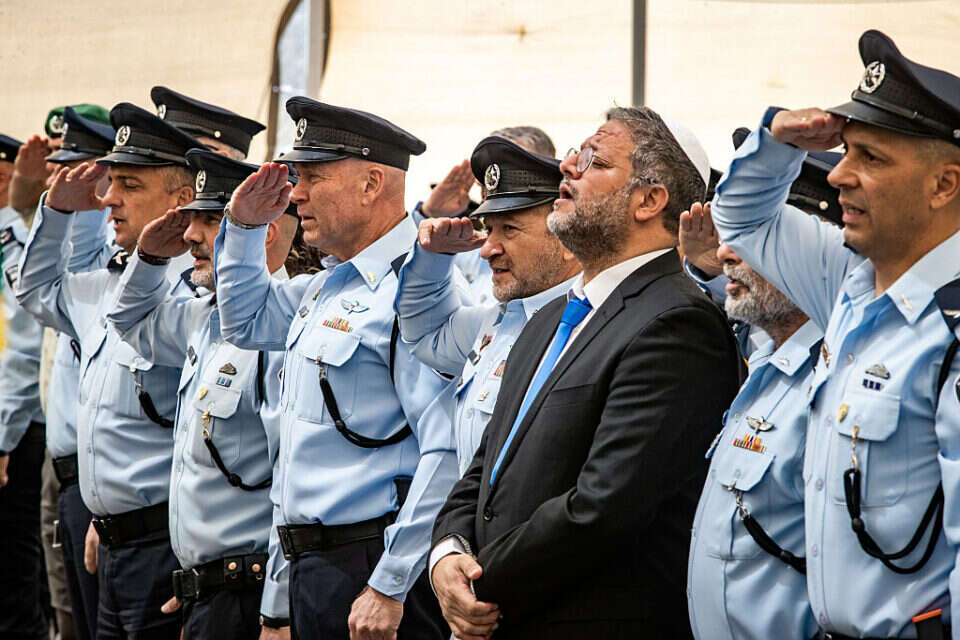On Saturday, the commander of the Rahat station, Superintendent J.R. Davidov, was killed in a battle with terrorists. He fought in several arenas before falling. On the same day, four more policemen from the station were killed.
In the first five days of the war, 51 policemen were killed, most of them from the Southern District. "I thought soldiers die in wars, not cops," my 6-year-old son said.
He is rightly confused. Classic policing does not include battles with terrorists. However, the unique reality in Israel has shaped the role of the policeman as one that also includes internal security tasks. In the wake of civilian disasters on the Israeli home front (the Maalot disaster is etched in memory in particular), Israeli police officers were required to take on tasks that their counterparts in the Western world adopted only decades later, especially after the Twin Towers disaster.
These tasks add complexity to the profession, which is already one of the most complicated in public service. Police officers have to perform many types of tasks – hugging a lost child, helping a demented elderly woman who won't return home, dealing with an ugly neighborly conflict, helping women who experience violence from their partners, and also fighting crime families in the public sphere.
Our perception – citizens of Western societies and in Israel – of the role of the police is that "something that shouldn't happen happens, and someone should do something about it now." It's an impossibly broad expectation, and it includes requiring police officers to assume a variety of identities, from compassionate sisters to thieve catchers. Knowing that someone like this exists is part of what gives us the confidence to conduct ourselves in the world, to know that there is someone who will do, who will protect. The hands of the policemen are the hands of the state, which protects us.
On 7 October, "something that shouldn't have happened" happened. For many civilians in the Gaza envelope, the country had become exhausted, and they were exposed to the terror. In some places, it was police officers who stood in the line of fire, the first to respond, to defend, to fall. J.R. was one of them. A professional, sharp commander with an astonishing dedication to his job. Over the past decade, I have met quite a few commanders with such qualities. But the dedication of police officers is not always perceived by the public. Public trust is elusive, and public trust in the police in Israel is low for a variety of reasons, and dropped even more during the coronavirus period.
In a divided society like ours, with a police force that for years has been "starved" of budgets, police performance fails to reflect the dedication of the officers. During the protest period, the police were torn between the sides, each side felt that the blue uniforms were "against it." In the fanning of politicians, the critical neutrality of the police was damaged, and it was painted as political and weak.
"Mom, is it your cops who died, too?" my son asked. "Yes," I told him. "You must be very sad." "That's right," I said, "these are our policemen." Their sacrifice and that of their families is terrible. I wish he would lead Israeli society to truly see our police – the challenges, the needs, the failures and the successes. As we saw during the COVID-19 pandemic and during the protests against the reform, the image of the police has a profound impact on the image of society and the quality of democratic life of its citizens.
Our perception – citizens of Western societies and in Israel – of the role of the police is that "something that shouldn't happen happens, and someone should do something about it now." That's an impossibly broad expectation
What are the skills and competencies that Israeli police officers need? Do they have enough budgets? Personnel? Training before and during the job? Organizational and emotional support? A respectful work environment? On the day after the war, Israeli society must address these questions. Among other things, because police officers in Israel have no right to unionize, and they are not subject to labor laws that apply to all of us.
The current period of chaos will end, and the day after the war, the problems faced by the Rahat police will not disappear. J.R. won't be there to deal with them. May we, as a society, recognize the importance of police work, and make the necessary changes to enable our officers to carry out their tasks in a way that respects them and us.
Wrong? We'll fix it! If you find a mistake in the article, please share with us

